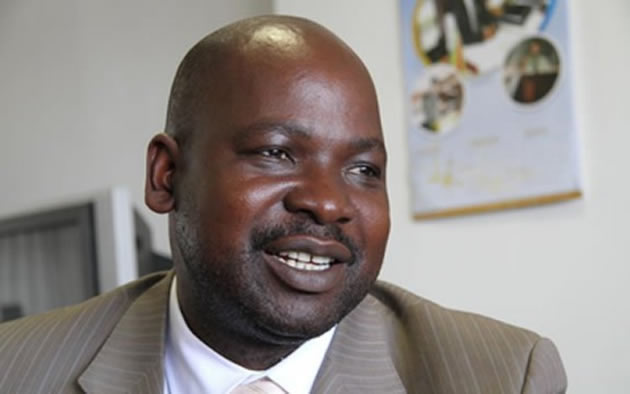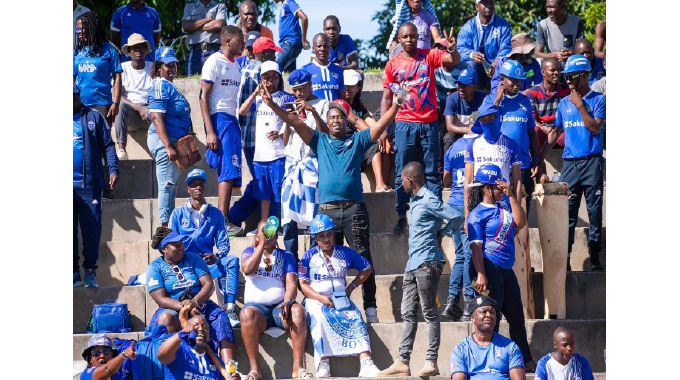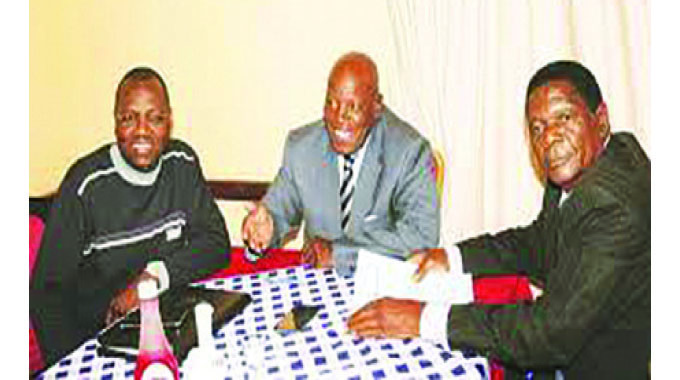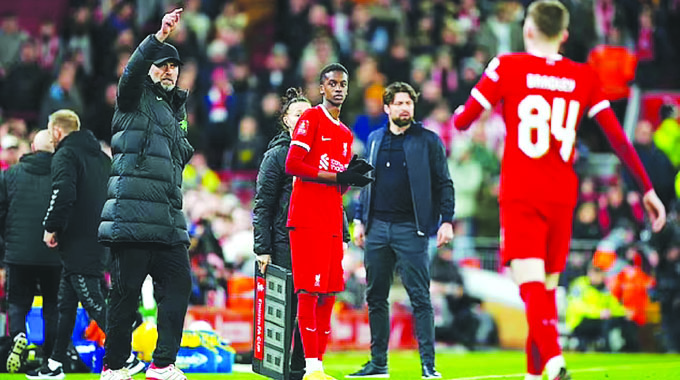AND I WONDERED WHY WE DON’T PAUSE TO ALSO REMEMBER THE FOOTBALL HEROES WHO FLEW OUR NATIONAL FLAG HIGH
ON Wednesday, the Springbok Class of ’95, the heroic men who powered to a monumental triumph in the Rugby World Cup that year, met at Ellis Park in an emotional reunion to celebrate that grand victory that shook their nation.
The Boks’ win in the final over the All Blacks was more than just a rugby match and many feel it provided the foundation on which this Rainbow Nation was built, making the difference from splitting, to uniting, a deeply-divided South Africa just emerging from the horror of apartheid.
Nelson Mandela, imprisoned for 27 years by those apartheid thugs — the majority of whom believed rugby was a religion and the Boks the sporting branch of their evil system – provided the enduring image of forgiveness by gracing their Finest Hour, wearing the jersey of skipper Francois Pienaar.
Mandela didn’t live long enough to see the 20th anniversary of that unforgettable day when the Boks not only became the champions of the world, for the first time, but made millions of black South Africans find something to love about them.
For decades, they had hated the Boks to the extent of supporting every team that played against them but on June 24, ’95, the power of sport united a fragmented nation, like had never been seen before in this world, beginning the long and difficult task of mending the cracks of a society deeply divided along racial lines.
As fate would have it, Mandela was 95, when he died, and one of the finest pieces of journalism, which I read on the day he died, was by Associated Press writer, Gerald Imary.
“He emerged into bright winter sunshine, stepped onto the lush field and pulled on a cap. His long-sleeve green rugby jersey was untucked and buttoned right up to the top, a style all his own.
On the back, a gold No. 6, big and bold.
Within seconds, the chants went up from the fans packed into Ellis Park stadium in the heart of Johannesburg — ‘Nelson! Nelson! Nelson!’
Nelson Mandela, South Africa’s first black president, was wearing the colours of the Springboks and 65,000 white rugby supporters were joyously shouting his name.
It was 1995.
The Rugby World Cup final, rugby’s biggest game. And yet it was much more. It was nation-defining for South Africa, a transcendent moment in the transformation from apartheid to multi-racial democracy.
The day spawned books and a blockbuster Clint Eastwood movie.
It still speaks — nearly 20 years later — to what sport is capable of achieving. With his cap and a team jersey, Mandela showed an incisive understanding of the role sport plays in millions of lives.
Mandela died Thursday at the age of 95.
On June 24, 1995, Mandela and South Africa were triumphant. And he may just have saved a country by pulling on that green and gold jersey with a prancing antelope on the left breast.
The Springboks were dear to the hearts of South Africa’s white Afrikaners and loathed by the nation’s black majority.
By donning their emblem, Mandela reconciled a nation fractured and badly damaged by racism and hatred.”
And, on Wednesday, South Africa remembered the heroes who made it all possible.
WHY CAN’T WE HONOUR OUR SUPERHEROES?
Watching the Springboks celebrate the 20th anniversary of the year they not only conquered the world but laid the foundation to build their Rainbow Nation, preventing it from sliding into conflict into one that would, in 15 years time, become the first African nation to host the FIFA World Cup, I really felt the raw power of sport.
And I wondered why we don’t pause, as a nation, to also remember the heroes who flew our national flag high and made us all proud to be called Zimbabweans with their combination of artistry and defiance on the pitch, representing you and me, in every tackle they made and every goal they scored.
Like a reunion of the remaining superheroes of ’85, now that this is the 30th anniversary of the year when those iconic Warriors finally proved that we could also be winners, on the football pitch, as they lifted the CECAFA Senior Challenge Cup at Rufaro before a full-house of screaming Zimbabweans.
Taking them to Rufaro for a journey back to the place where they represented this nation with distinction that unforgettable month in ’85 when they defied the weight of the expectations of a country that badly wanted them to win and delivered, in spectacular fashion, a silverware that used to have its weight measured in gold back in those days.
Reliving that first group game when they beat Tanzania 1-0 on October 4, ’85, and then drew 1-1 with a very powerful Kenyan team, two days later, to get the three points, back in the day when you only got two points for a victory, which was enough to take them into the semi-finals.
Reliving that semi-final against a very strong Malawi, which had won Group 2 in Bulawayo, and remembering that it was the 38th minute goal by the immortal Shacky “Mr Goals” Tauro which powered us to a 1-0 win, in an epic contest, to open the door for us to march into the final where, of course, Kenya lay in ambush.
Reliving that unforgettable final before 32 000 fans, a capacity crowd in the days before Rufaro had been redeveloped, made up predominantly of Zimbabweans who wanted their Warriors to triumph against an plucky opponent that had shown, in an earlier group game, that they would provide very tough opposition.
Recalling that, until the 70th minute of that final, the game was still deadlocked, which meant that it could go still go either way in the final 20 minutes, and then, suddenly, Mr Goals exploding into action and, in a flash, the Warriors are ahead, the mayhem inside the stadium as the fans rise to salute their heroes and enjoy the golden moment.
The wave of joy that swept across the entire nation as millions of Zimbabweans, following the live broadcast of the match on radio back in the days when the voices of Jonathan Mutsinze, “kunonoka Mooooooooses, vamwe vangavatopinda nechekare,” Choga Tichatonga Gavhure, “‘Zvinhu zvaita manyama amire nerongo, mirai tione kuti zvinofamba wani wani,” Kingsley Sibanda and others made it so fashionable to enjoy the game via their commentaries, was just incredible.
But, as long as it remained a one-goal difference, the Kenyans knew that they had a chance and, after the euphoria of celebrating that goal had died down, came the nerves that came with looking at the watches, wondering why every minute now looked like an hour, and praying that time, indeed, should fly towards the 90th minute mark.
Recalling that, with two minutes of regulation time left, something very, very special happened, when Gift “Ghetto” M’pariwa, in as a substitute for Moses Chunga just after the hour mark, provided the insurance second goal that settled the nerves and started the nationwide party that would go on for days.
But, while the South Africans have refused to let the magical moments created by the Boks of ’95 fade into the history books, forgotten by a generation that emerged after Ellis Park and Mandela danced to the song of triumph, we are allowing the feat of our superheroes of ’85 to be forgotten even though they became the first group of Warriors to show us that we can win silverware in this game.
Thirty years after Japhet M’parutsa, Oliver Kateya, James Takavada, Misheck Marimo, John Phiri, Joel Sambo, David Mwanza, Stanley Ndunduma, Moses Chunga (Gift M’pariwa 62nd minute), Shacky Tauro, Edward Katsvere and their coach Mick Poole made us touch the heavens, we are allowing their images to fade away.
Maybe John Phiri is to blame, given that he was there in the trenches, and has now allowed himself to be abused by those who never played this game but are clearly taking advantage of his situation to force him to be a part of their decisions that are destroying, rather than building, the game that gave him his name.
He carried the hopes of many former footballers and journalists when he became a ZIFA Board Member, the man who would be groomed to finally become our version of Kalusha Bwalya, but one gets the feeling that, somewhere along the way, we lost the JP that stood like a rock in those trenches when he was a real Warrior.
FOOTBALL IS A VERY POWERFUL WEAPON THAT CAN UNITE US ALL
“Sport has the power to change the world,” Mandela said, five years after his appearance at Ellis Park for his dance with the triumphant Boks.
“It has the power to inspire, it has the power to unite people in a way that little else does. Sport can create hope, where once there was only despair. It is more powerful than governments in breaking down racial barriers. It laughs in the face of all types of discrimination.”
Football has the power to unite and cheer us in these tough times and one only needs to have seen the wave of joy that swept across the entire country, after the Warriors defeated the Flames, and all those happy faces at Rufaro last Sunday, after we beat Comoros.
The CHAN tournament is a tourney that some African countries don’t even take seriously but, because we love our Warriors so much, we had an estimated 15 000 fans at Rufaro, for a game that was live on national television, with a similar number being frustrated by the chaos at the gates and forced to return home.
Comoros, ranked 190-something in the world, is a nation that belongs to the backwaters of international football and not the kind of opposition that will generate interest among fans in some countries but here, because we love our Warriors, an estimated 30 000 fans were ready to get into Rufaro to watch them.
Just imagine the possibilities if our focus was on developing our football, and helping our Warriors scale dizzy heights, rather than the senseless boardroom wars that have become a part of the DNA of our football leaders in the past five years?
Imagine what we would achieve as a nation if Mashingaidze’s sole focus, every day he went to work, was to ensure that he builds bridges and grows this game rather than fighting this and that war, including insulting his vice-president, Omega Sibanda, as a horrible man who borrows money from ZIFA employees, and who wants to live the expensive life of sleeping in trendy hotels.
Surely, Omega might not be as rich as Cuthbert Dube but everyone in Bulawayo knows that he has substantial investments and business interests that he runs he would never reduce himself to borrowing money from ZIFA employees who have not been paid for nine months.
If, indeed, he borrowed from them, where are they getting the money when they haven’t been paid in nine months?
Imagine what we would achieve as a nation if Mashingaidze extended an olive branch to all the people he sees as shadows that are fighting him and he concentrates all his energies, given that he is blessed in this area, in coming up with strategies to grow our football and turn it into the industry that it can really become?
Imagine the possibilities if Mashingaidze would devote his boundless energy — given that he appears to be a genius – to rebuilding the image of ZIFA rather than fighting wars against Tinashe Mapuranga, Josh Khumalo, Miriam Sibanda, Ben Gwarada, Sweeney Mushonga and all the Councillors who briefly revolted against the ZIFA leadership?
Imagine the possibilities if Cuthbert Dube could, like Mandela before the Springboks plunged into their defining World Cup in 1995, declare that let us let bygones be bygones and he shows his true leadership skills by uniting his fragmented constituency and everyone works for the good of football and our Warriors?
And we celebrate the exploits of Evans Rusike and Khama Billiat instead of bogging ourselves down with the politics of the boardrooms and, in the week that Dynamos and Highlanders meet, it’s their players — and not the boardroom wizards — who dominate the back pages of newspapers.
Imagine what we could achieve as one united nation, one united Football Association, and what lessons can we pick from the Springboks of ’95 and how they brought together their fragmented nation and changed it forever.
Come on Mash, it can be done mate, and a lot depends on you!
To God Be The Glory!
Come United!!!!!!!!!!!!!!!!!!!!!!!!!!!!!!!!!
Chicharitooooooooooooooooooo!
Text Feedback — 0772545199
WhatsApp Messenger – 0772545199
Email — [email protected]
Skype — sharuko58
- Like my Facebook page, ROBSON SHARUKO JOURNALIST, follow me on Twitter @Chakariboy, interact with me on Viber and on ZBC’s weekly television football magazine programme, GamePlan on Monday nights, or read my material in The Southern Times.








Comments